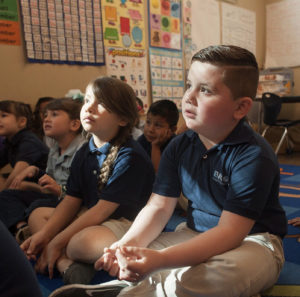Faith-Bashing Universities? A Brief Guide On Transitioning to College for Christian Students
Many Christian parents are concerned that after carefully helping their children with Christian formation through high school, a secular college will work to deform them after all. For example, the…
Many Christian parents are concerned that after carefully helping their children with Christian formation through high school, a secular college will work to deform them after all. For example, the University of Iowa, having oppressed Christian student organizations for years, keeps losing in court for doing so. It is common that dorm (“residence life”) officials denigrate religion and religious views in the name of diversity. And official campus ministers frequently come from the radical element of the denomination.
What can parents and their children do to choose a college that respects their tradition? It’s not necessary, though it may be worthwhile, to hide out in one of the great Christian colleges that adheres to a specific dogma. However, a great college experience, if one is not merely seeking a future career, serves the purpose of intellectual challenge of all ideas and asks students to justify their beliefs from first principles. A well-formed person trusts that this challenge will lead them to a deeper understanding of truth, goodness, and beauty rather than falling away from them.
The challenge is to find professors and courses that will respectfully provide the intellectual challenge that will best help the student advance in understanding, in a large enough community of believers to provide fellowship both on and off campus.
Campus tours won’t reveal this information. Instead, I recommend finding the Christian organizations on campus that best reflect the student’s faith, and asking students what the situation on the ground really is. Key questions to ask:
- Which professors and courses have you found most valuable for deepening your understanding?
- What is dorm life like? Are Christian views accepted as part of diversity or are they denigrated?
- How is the overall campus culture? Do a lot of students self-censor just to get along? Do Christians actually evangelize on campus (among those for whom evangelizing is a core element) or are they too scared of social sanction and punishment? What strategies have you found effective for speaking sincerely on campus?
- How are the official campus ministers? Are they trying to deepen traditional faith or unravel it?
- Is there a healthy church in your denomination that’s easy enough to reach from campus?
- Is there pressure or punishment to use other people’s nonconforming pronouns? Can students realistically resist?
Then, it is worth contacting a couple of those professors to ask the same questions and to push a bit farther, using the answers received from the students.
Usually there is a way, even in a somewhat hostile college, to choose courses and activities wisely so as to get solid educational formation at the college level. But a lot depends on the formation of the student before reaching college. Being prepared in apologetics is one thing, but being prepared for the social and cultural situation is another. A Christian student should see today’s American campus, for the most part, as a mission field rather than a natural extension of the normal American culture they may be accustomed to (not counting Berkeley, Boston, Boulder, Brooklyn, Portland, and so on).
If the student is not so well formed or would benefit more from a smoother experience, there remain plenty of solid Christian colleges, often small but hearty, to choose. Lists are readily available.
One thing to remember is that “Christian” encompasses a very wide range of perspectives. The members of the Council for Christian Colleges and Universities span that spectrum. Institutionally, the CCC&U is a few units left of my views on how to handle certain issues, but it might be a few clicks right of yours. For those who lean farther right, the newer International Alliance for Christian Education provides a better starting point.
Students also will benefit from knowing their First Amendment rights (especially at public colleges) for times when they are unlawfully or unethically punished for expressing their views and values. It is better to be forewarned and forearmed than to try to figure out one’s rights in the moment. The top source for understanding our first freedoms in the college context is the Foundation for Individual Rights in Education. FIRE’s Guide to Religious Liberty on Campus and other guides are clear and indispensable.
Another helpful resource is the U.S. Department of Education’s guidance on religious expression in public institutions, which was updated by the Trump Administration. (I worked at FIRE and at the Department of Education.) The key insight for students is: whatever time, place, and manner of secular expression is allowed, the same religious expression is allowed, at a public institution. That guidance is geared toward the K-12 context, and students’ rights in the adult context of college are even stronger.
Private colleges also can be held to account. In California, non-religious colleges are bound by the “Leonard Law” to protect free speech at the same level as public colleges. Furthermore, most private non-religious colleges, and many religious ones, promise free speech and can be held to those promises—both morally and in court.
When a student’s rights are actually violated, FIRE can help with or without litigation. Sometimes litigation is necessary, and beyond FIRE, top nonprofits that might take the case include the Becket Fund for Religious Liberty, Alliance Defending Freedom, First Liberty Institute, and more.
Finally, if you want a literary perspective on the experience of choosing a good school for a son or daughter, I recommend Joan and Peter, a magnum opus by H.G. Wells. In the novel, Oswald frets that growing up and the rush of civilization crush by too fast for the guardian to keep up:
“The generations running to waste like rapids—like rapids. …”
Choosing a college is challenging because each student is unique, is on a lifelong journey of formation, and cannot predict the future (nor can their parents). But people are pretty resilient, and it is not so bad to make a suboptimal choice. Usually we do, and we recover. Most of our children will emerge from college wiser and stronger.



